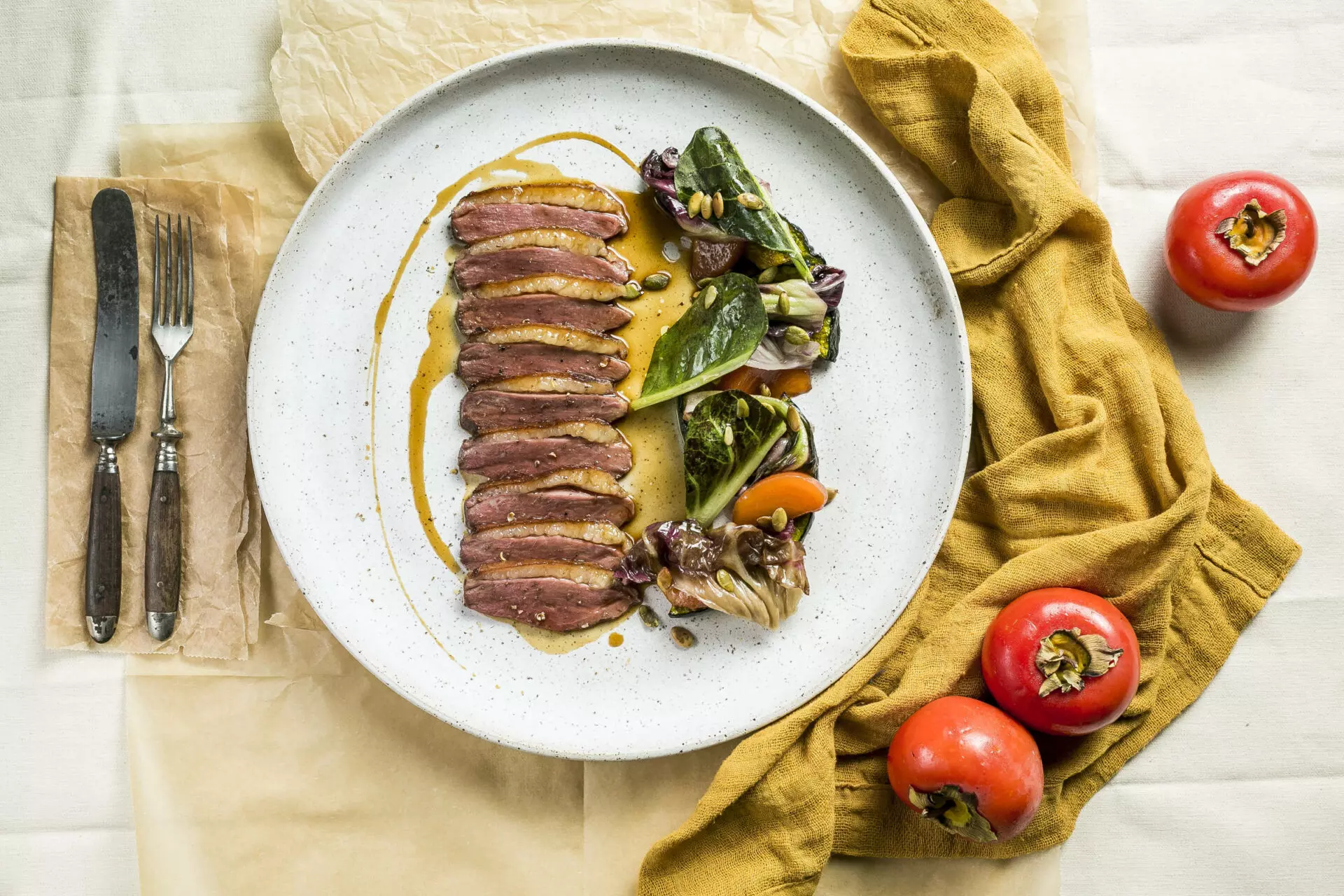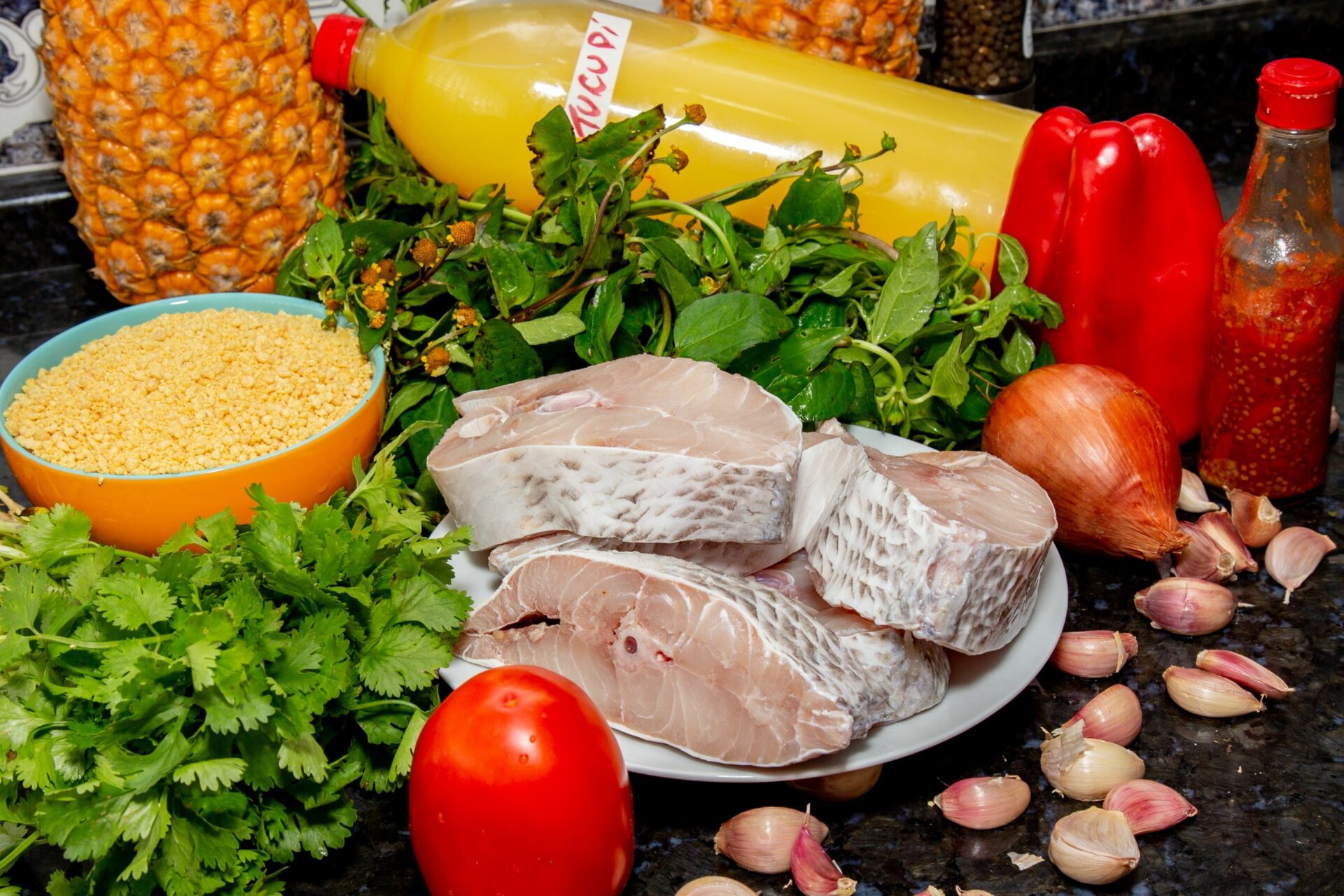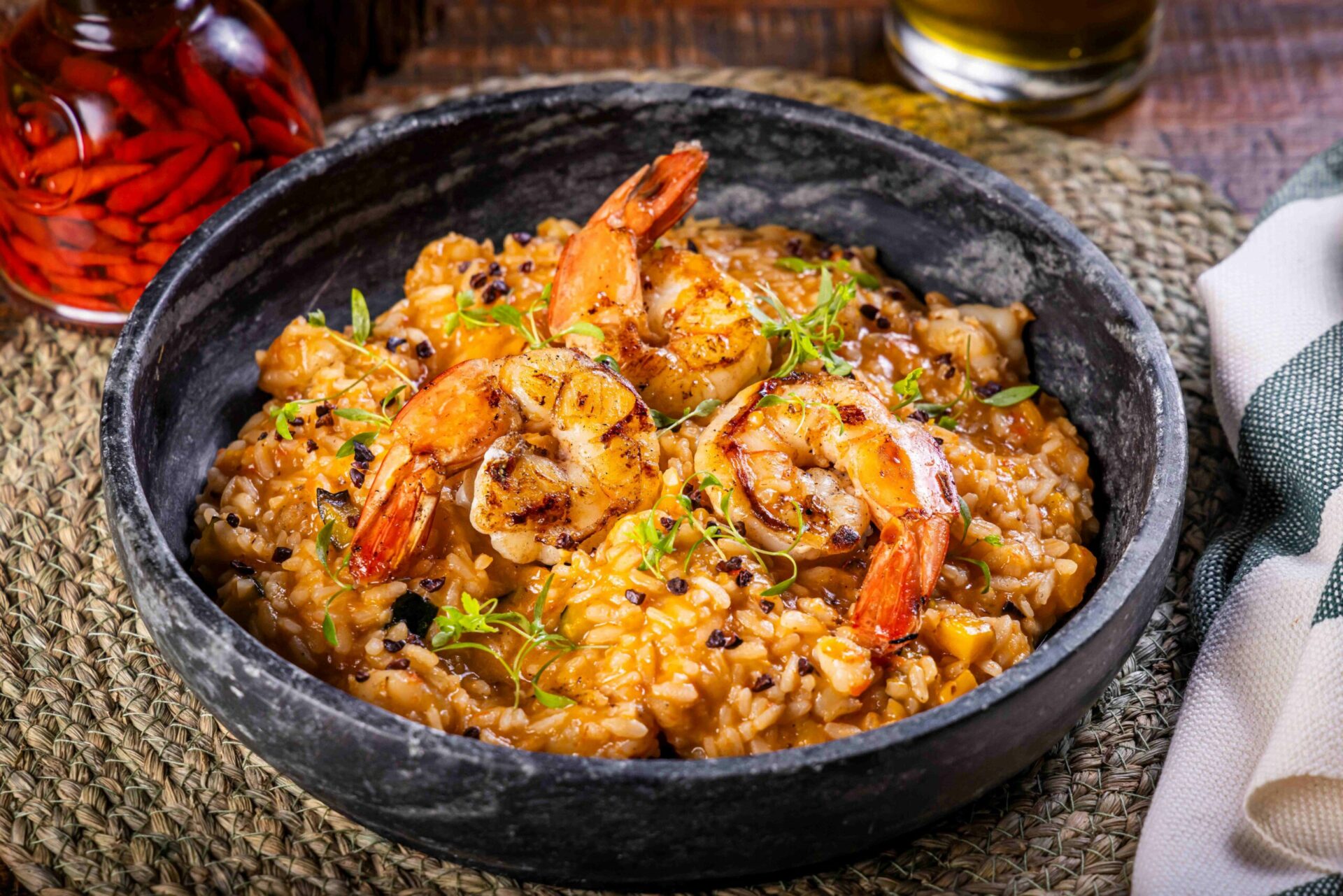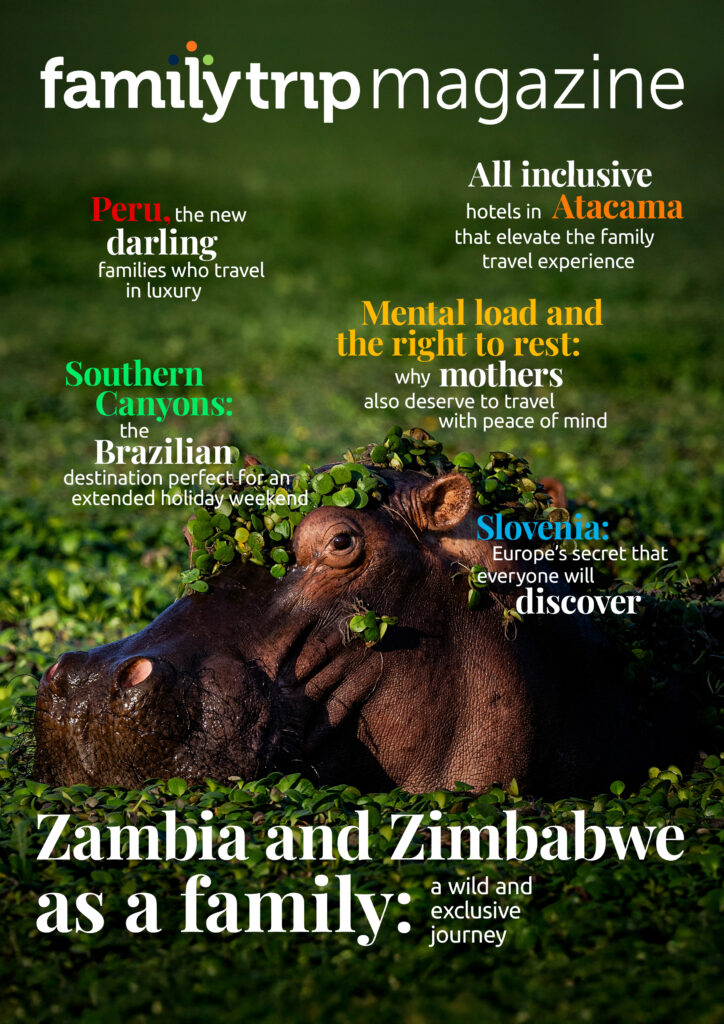
- The world at your table
Ecogastronomy: savor Brazil sustainably with family
Prioritizing local, natural, seasonal, and organic foods, gastronomic experiences connect hosts and travelers, creating authentic and transformative experiences
By Editorial Team
The vastness that encompasses Brazil from end to end is rich in flavors that tell stories. Traveling with family is a perfect pretext to explore this diversity, where each stop can transform into a lesson about sustainability and culture. Ecogastronomy, a concept introduced by Carlo Petrini, founder of the Slow Food movement, emerges as a bridge that connects cuisine to environmental preservation, inviting us to rethink the act of eating as a gesture of respect and celebration. It prioritizes natural, local, seasonal, and organic foods, following the motto of gastronomy that is good, clean, and fair.
In the country with the world’s greatest biodiversity, ecogastronomy finds fertile ground. The concept, which unites sustainable agricultural practices and valorization of a destination’s biological diversity, goes beyond the plate. It’s a movement that proposes a rescue of local food traditions, privileging ingredients that respect the natural cycle and the communities that depend on them. For families, this is an opportunity to teach children that food is, above all, a narrative.
Principles that guide ecogastronomy
Among the practices that sustain ecogastronomy, family and organic agriculture stand out for fostering microeconomy and preserving the health of farmers and nature. Choosing products cultivated by small families or cooperatives strengthens the local economy and ensures that foods are free from pesticides. This direct support to local farmers translates into fairer trade, where the value of producers’ work and dedication is properly recognized.
Promoting the valorization of farmers and local producers ensures that these workers receive a fair price for their work, contributing to the sustainability of agricultural practices and community well-being. Local production also plays a crucial role in reducing carbon emissions and food losses in transportation, since products are consumed close to the production site, reducing the need for long delivery distances and, consequently, reducing environmental impact.
This local production, by minimizing the carbon footprint associated with food transportation, further reinforces biodiversity protection. Agricultural practices that don’t degrade the environment and that promote conservation of local species are fundamental to ensuring that future generations can continue to enjoy the same natural resources we have today. The preservation of natural cycles and nature regeneration are thus central pillars of ecogastronomy.
Food diversity is also essential for authentic and sustainable cuisine. Prioritizing local and unconventional foods not only enriches travelers’ palates but also encourages preservation of species and varieties that could be forgotten. Fresh and natural foods provide nutrition rich in nutrients and genuine flavors, reflecting the richness of territory and local culture.
Using all parts of foods, a practice known as zero waste, teaches environmental responsibility in a practical and creative way. Reducing waste and maximizing each ingredient decreases environmental impact and demonstrates deep respect for the food life cycle. This principle aligns perfectly with decarbonization goals, where restaurants and hotels adopt ecological practices to reduce their carbon emissions, promoting more responsible and conscious tourism.

Community-based tourism
In Brazil, ecogastronomy is growing, especially in community-based tourism projects. This type of tourism is characterized by the management and organization of tourist activities by the communities themselves, allowing visitors to experience local culture in an authentic and respectful way. In Brazil, this modality has gained prominence, especially in projects that combine ecogastronomy and sustainability.
These initiatives show how foods can be a link between hosts and travelers, creating authentic and sustainable experiences. In many national destinations, community-based tourism offers the opportunity to discover regional gastronomy directly from the hands of local producers and cooks, who share their traditional recipes and the community’s way of life.
Jardim Vitória Régia, Alter do Chão (PA)
A visit to Jardim Vitória Régia allows tourists to try products made from this plant, such as juices, flours, and even sweets. Learning about the ecological and cultural importance of the vitória-régia enriches the experience, showing how Amazonian biodiversity is preserved and valued.
Núcleo de Turismo Étnico Rota da Liberdade, Cachoeira (BA)
Exploring Afro-descendant culture and cuisine on the Freedom Route includes a visit to Quilombo Kaonge, a major oyster producer. The immersive experience in local history and flavors, with traditional dishes and ancestral techniques, offers a deep connection to African roots and the history of resistance and cultural preservation.
Quilombo do Campinho, Paraty (RJ)
The tour through Quilombo do Campinho’s agroecological system includes visits to the flour house and community restaurant, where foods are harvested locally. Visitors can learn about sustainable practices and the importance of cultural preservation, tasting dishes that reflect quilombola identity.
Experience with Jorge Ferreira, Paraty (RJ)
A specialist in wild mushrooms and Non-Conventional Food Plants (PANCs), Jorge Ferreira offers experiences of collecting and preparing foods directly from the forest. Participants connect with nature in a deep way, learning about local biodiversity and sustainable practices for using natural resources.
Acolhida na Colônia, Santa Catarina
Rural tourism based on agroecology in Santa Catarina promotes various accommodation and experience options throughout the state. Families can stay on farms, participate in organic product harvests, and experience country life, learning about sustainable practices and the importance of local production.

Ecogastronomic restaurants
In addition to community-based tourism projects, restaurants can also adopt ecogastronomy practices. These establishments, by using organic and local ingredients, promoting reduced plastic use, and implementing waste composting, not only provide a unique gastronomic experience but also educate their customers about the importance of sustainability in food.
Bijajica – Florianópolis (SC)
Bijajica, led by chef Fabiano Gregório, is part of the Slow Food movement and offers dishes with organic and locally produced ingredients. The restaurant also has initiatives to reduce plastic use and promote waste composting.
Maní – São Paulo (SP)
Restaurant Maní, commanded by chef Helena Rizzo, is an example of ecogastronomy in São Paulo. Part of the Slow Food movement, Maní uses organic ingredients from small local producers. The restaurant promotes sustainability through practices such as using seasonal ingredients and zero waste techniques.
Natura – Brasília (DF)
Located in Brazil’s capital, Natura is known for its commitment to sustainability and ecogastronomy. The restaurant uses organic and biodynamic ingredients, many of which are grown in its own garden. Additionally, Natura adopts practices such as waste composting and minimizing plastic use.
Capim Santo – Trancoso (BA) and São Paulo (SP)
Capim Santo, with units in Trancoso and São Paulo, is led by chef Morena Leite. The restaurant values Brazilian cuisine with organic and locally produced ingredients. Sustainable practices include waste composting and renewable energy use, plus social projects to train the local community.
Quinta do Olivardo – São Roque (SP)
Quinta do Olivardo, in São Roque, is a restaurant and winery that follows sustainability principles in all its operations. Dishes are prepared with organic and self-produced ingredients, and the restaurant promotes zero waste practices, while offering educational activities about sustainable agriculture.
Oryza – Curitiba (PR)
Oryza, in Curitiba, is a restaurant that focuses on sustainable cuisine with a menu based on local and seasonal ingredients. Chef Dudu Sperandio prioritizes organic foods and supports small regional producers. Additionally, the restaurant adopts composting practices and plastic waste reduction.

A transformative experience
For families seeking more than beautiful landscapes, ecogastronomy proposes purposeful travel. It’s a transformative experience that teaches essential values for future generations. Through direct contact with local producers, tasting traditional dishes, and immersion in the stories and cultures of visited communities, children learn about the importance of sustainability, environmental respect, and valuing traditions. By choosing destinations and activities that privilege sustainability, parents teach children that it’s possible, and necessary, to enjoy without destroying. Thus, each meal becomes a practical lesson in citizenship and environmental responsibility, leaving a legacy that goes far beyond vacation memories.
Things the Way Family love to pack in their suitcase:
Gate
Eletronics for the travel: smartphone, drone, câmera, charger,…
Destiny
UV clothes, bikinis, caps, diving goggles, snorkel mask and other accessories…

















